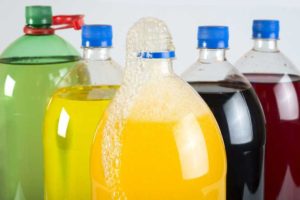
Through a notification dated 16 August 2016 the FSSAI has proposed amendments in the Food Safety and Standards (Food Product Standards and Food Additives) regulation 2011 related to the revisions that FSSAI proposes in the standards for carbonated beverages or fruit drinks. The FSSAI has asked for objections and suggestions from stakeholders and will be considered up to 30 days from the date of the notification. Once notified in the Official Gazette, these amendments will be known as Food Safety and Standards (Food Product Standards and Food Additives) Amendment Regulations, 2016 relating to ‘revision of carbonated fruit beverages or fruit drinks’.
The amendments have been proposed in the Food Safety and Standards (Food Products Standards and Food Additives) Regulations, 2011, under regulation dealing with FRUIT & VEGETABLE PRODUCTS in sub-regulation relating to ‘Carbonated Fruit Beverages or Fruit Drinks’ (2.3.30). According to this regulation, the requirements for standards are as follows
(i) Total Soluble Solids (m/m) Not less than 10.0 percent
(ii) Fruit content (m/m)
(a) Lime or Lemon juice Not less than 5.0 percent
(b) Other fruits Not less than 10.0 percent
In the proposed amendments the FSSAI has now said that if
- Quantity of fruit juice is below 10.0 per cent but not less than 5.0 per cent. (2.5 per cent.in case of lime or lemon), the product shall be called ‘carbonated beverage with fruit juice’
- In this case, the 10.0 requirement of TSS (Total Soluble Solids) shall not apply
- The quantity of fruit juice however, now has to be declared on the label
Till recently carbonated drinks were one of the most widely consumed beverages but with health concerns, their popularity is decreasing. Drinking carbonated beverages can lead to some lifestyle-related problems like weight gain because of their sugary content. Since there is a demand for healthier soft drinks manufacturers have begun to make carbonated beverages that have some juice content hence the requirement for amendment in standards. These changes in standards are likely to spur the move to manufacture carbonated drinks with fruit juice.
Leave a Reply